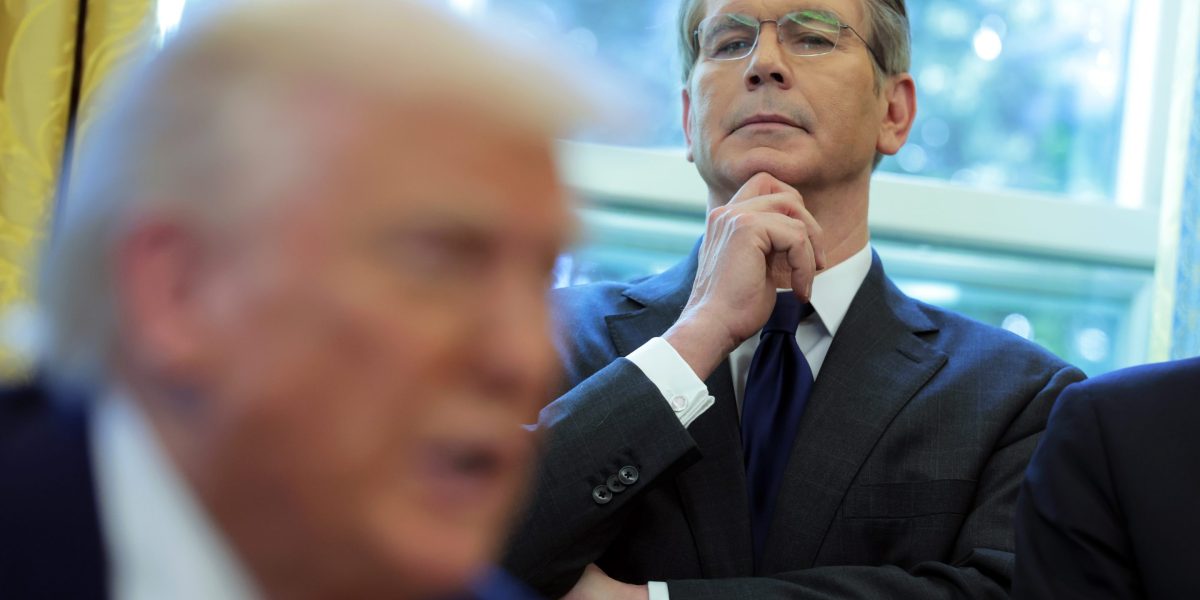In U.S. financial history, there are weeks that live in infamy—like the “Black Tuesday” stock market crash of 1929, or the 2008 Lehman Brothers bankruptcy, or the COVID-induced shock of 2020. To this list we can add the “Liberation Day” market meltdown triggered by President Donald Trump’s successive announcements of sweeping tariffs over the past two weeks.
The ensuing damage was enormous, as panicked investors sold off both stocks and U.S. Treasuries, leading to a $10 trillion wipeout in global equities between April 2 and April 9, when the president “paused” some of his tariffs. While the markets had recovered much of those losses by Friday, most major stock indexes are still in correction territory, and remain in a state of turmoil defined by wild volatility, as many traders fear there’s far more economic damage to come.
Amid the enduring chaos, a clearer picture is emerging of what happened, and what the potential long-term effects could be. Most obviously, of course, the tariffs themselves have caused the meltdown as, for the first time in nearly a century, the U.S. government has forsaken free markets in favor of mercantilism. On top of this fire, Trump has poured the gasoline of uncertainty, rolling out tariffs in the name of increasing U.S. industrial production, but implementing them in haphazard ways, and then abruptly reversing his decisions. No one knows what he will do next; communication between the White House and business leaders has been scant.
The capital markets have made clear that they don’t like what’s happening. In the most alarming development, many investors have reacted by selling off U.S. Treasury bills—the asset that for decades has represented the safest of safe havens. For the first time in living memory, some players have lost confidence in the U.S. financial system and are seeking security instead in Europe and Asia.
This erosion of confidence is being felt not only in the sell-off of T-bills, but in the sudden plunge of the U.S. dollar. Business leaders, who stayed mostly silent until the Liberation Day fallout, are beginning to sound the alarm about long-term harm to the American economy, while companies are scrambling to address upended supply chains and plan for the future. Tariffs, meanwhile, are widely regarded as inflationary, and consumers are increasingly frightened as they realize that the cost of eggs is not coming down, and that cars and many other goods could soon be punishingly expensive, if not out of their reach altogether.
In these unprecedented economic conditions, how should executives and investors react? To offer some guidance, Fortune has tapped into the expertise of its veteran business journalists to provide both sharp analysis—such as an overview of the “murder mystery” in the bond market that led Trump to flinch on his latest round of tariffs—and practical advice. We’ve curated some of our best recent coverage in a special report, The Economy In Crisis.
Our guidance includes a look at how some popular assets, including gold and Bitcoin, are performing, and advice on how to adjust your portfolio to account for a declining dollar and other potentially permanent shifts in the financial landscape. We report on how Walmart, Apple, and other Fortune 500 companies are adjusting to a climate in which free cross-border trade can no longer be taken for granted. Together, the stories help explain what happened in the most chaotic 10 days in the market in years, and offer a sense of what could happen next in an economic storm that appears far from over. Read on—and buckle up.
This story was originally featured on Fortune.com
Source link


 Politics8 years ago
Politics8 years ago
 Entertainment8 years ago
Entertainment8 years ago
 Entertainment8 years ago
Entertainment8 years ago
 Entertainment8 years ago
Entertainment8 years ago
 Tech8 years ago
Tech8 years ago
 Tech8 years ago
Tech8 years ago
 Tech8 years ago
Tech8 years ago
 Politics8 years ago
Politics8 years ago






